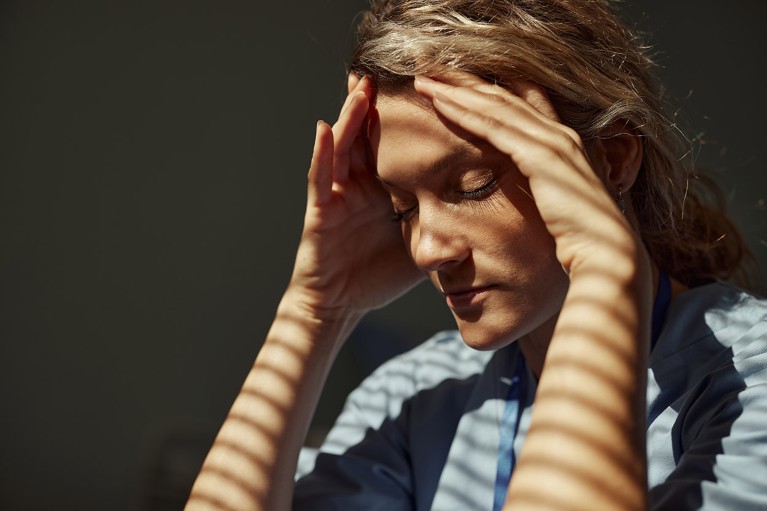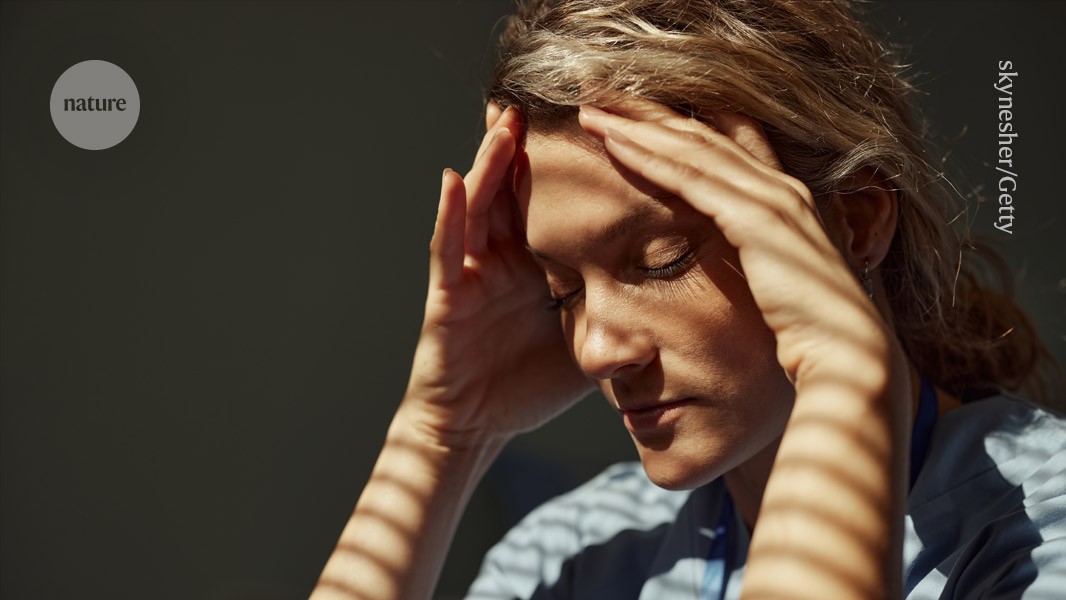
Migraine symptoms that appear long before a headache can include fatigue, light sensitivity, neck pain and difficulty concentrating. Credit: skynesher/Getty
Scientists have shown that a drug approved to treat migraine headaches can also alleviate debilitating non-headache symptoms, such as fatigue, brain fog and blinding light sensitivity, that occur as the migraine is starting.
The drug — called ubrogepant — is already known to stop the onset of a full-blown migraine attack in some people if they take it when the headache begins. But a phase III clinical trial, described in Nature Medicine on 12 May1, shows that it can also tackle the ‘prodrome’ symptoms that arrive hours or even days earlier.
The results suggest that ubrogepant could “free patients from a disabling part of migraine”, says study co-author Peter Goadsby, a neuroscientist at King’s College London.
Early intervention
The process of a migraine starts long before the head pain, when brain circuits involving the hypothalamus — a region that regulates several vital bodily functions — become dysregulated. In the prodrome, or premonitory phase, people can experience various unpleasant symptoms, including fatigue, neck pain, an aversion to light (photophobia) or sound (phonophobia) and difficulty concentrating.
“Not enough attention has been given to prodrome symptoms,” says Goadsby. The trial aimed to “fill this gap” by investigating whether ubrogepant has an effect on the initial stages of a migraine.
Migraine is more than a headache — a radical rethink offers hope to one billion people
The trial included 438 participants who could reliably identify incoming migraine attacks from their prodromal symptoms. During the 60 days of the trial, they took ubrogepant or a placebo whenever they felt any prodromal symptoms coming on, and reported whether doing this had any effect.
The results suggest that for some participants, the drug increased their ability to concentrate one hour after treatment, reduced their photophobia two hours after treatment and reduced their fatigue and neck pain after three hours.
But the “effect sizes were small” and never more than 15 percentage points compared with the placebo, points out Gregory Dussor, a neuroscientist and migraine specialist at the University of Texas at Dallas. For example, 27% of participants who took ubrogepant reported an absence of fatigue, compared with 17% who took the placebo. Dussor suggests this modest improvement is because the class of drugs to which ubrogepant belongs is a “life-changing therapeutic” for a minority of people — perhaps only one in five, according to some studies. It makes little difference to others, so its effect for that minority “gets diluted in the data”.



